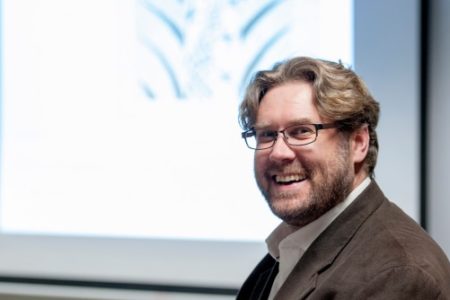This might seem a strange question to ask. After all, our very name tells us: we’re uniting. Yes, this tells us something about the ecumenical context of our origins. We are one product of the 20th century pursuit of visible church unity.
For a while, our existence was something of a beacon to other churches – a sign of what could actually happen when long-standing differences and mistrust were put aside. Indeed, we had a mandate to go on uniting.
But what now? The quest for visible church unity is no longer characterised by the energy it exhibited in the middle third of the 20th century.
Churches have found ways of respecting and supporting each other, and somehow co-existing, despite continuing differences. Church division doesn’t seem to be quite the scandal it once was. Moreover, the rise and proliferation of Pentecostal and independent churches in Asia, Africa and South America has completely re-shaped the ecumenical landscape.
The diversity of Christianity is now even more complex than anything thrown up by the conventional denominational differences associated with the historic European churches.
We and other ‘mainline churches’ are often little more than bit-players in those recent global movements.
Of course, over the last 40 years we’ve quite rightly taken up additional and new vocations. We shouldn’t expect it to be otherwise if we believe that we are being led by the Spirit. We demonstrate that in the way we quite frequently describe ourselves as a multicultural, inclusive, covenant-making, social justice-prioritising and diverse church. None of the commitments behind these adjectives are in question.
But look more carefully at what we do when we put any of those adjectives, including uniting, in front of the word church. We risk defining ourselves over and against other churches.
Given the reality of multiple churches, this is largely inevitable. But that doesn’t mean we shouldn’t pause and look more deeply at what is going on. Are we in fact simply perpetuating denominationalism, albeit in a new form, by continuing to define ourselves over and against other churches?
What happens when we take those adjectives away and are left with ‘church’? Why is there a church in the first place and why should there continue to be a church?
My hunch is that, quite apart from the answers offered, the force of those questions will vary according to our generation and whether or not we are shaped by a Christendom or post-Christendom imagination. Let me explain this.
The generation which courageously voted for union was largely able to take the existence of the church for granted. It was part of the fabric of society. Being a Christian and going to church had cultural legitimacy. The existence per se of the church did not require social justification. Accordingly, there was cultural, spiritual and intellectual space to think about such matters as uniting divided churches, the social role of the churches, and even the finer doctrinal points of inter-denominational disputes.
None of this was trivial, and without it union would never have happened. It was, however, the world of Christendom.
On the other hand, matters are quite different for anyone born after union, let alone in the last 20 years. They know first-hand, in a way that those of us of the older generation don’t, what it means to be in a culturally minority position and daily engaged with a level of cultural pluralism unimaginable 40 years ago. They have never known the church to be a major social player.
They have no memory of, and therefore no nostalgia for, huge Sunday schools and church sports clubs or the church possessing social prestige. Uniting Church congregations have simply not been big enough for their lives to be built around their church commitments the way the lives of many of us older Christians were.
For them, Christianity is something you have to step into with few cultural supports for doing so. Many of them will be the only point of contact with Christianity for perhaps most of their friends.
Recently, a sales assistant – probably in her mid-20s – asked me what I did. On hearing that I was a minister she responded by telling me that no one in her family has ever had any contact with religion. I suspect she and her family are far from alone. This is the post-Christendom world.
I believe that this post-Christendom world has largely caught the Uniting Church by surprise. The courage, hopes and aspirations which accompanied union and which have sustained us for 40 years were the hopes and aspirations which were needed in Christendom. We were right to show that courage, have those hopes and nurture those aspirations.
Yet, the remarkable thing is that the theology which brought union about was strangely anticipating post-Christendom. (This was not accidental. The authors of the Basis of Union had noted the declining influence of Christendom in their first Report in 1959.) There is a sense in which we now have a chance to catch up to the theology of the Basis.
When the Basis describes the church as “an instrument through which Christ may work and bear witness to himself” it defines the church wholly in terms of its relationship to Christ. This might seem a straightforward matter, but it is exactly what risks being obscured when we don’t pause to ask what ‘church’ means and we emphasise instead any of the various adjectives we choose to place before it.
As we move more deeply into the post-Christendom context, the questions of the ‘what’ and ‘why’ of the church will press upon us more persistently. Starting to answer those questions with something like ‘an instrument through which Christ may work and bear witness to himself’ could prove very fruitful.
It also pushes us back to ask, ‘Who is this Christ for whom we are an instrument?’ And on such questions, I believe we need to listen to the post-union/post-Christendom generation of the UCA as they help us reflect on what the UCA is for.
Geoff blogs at www.xenizonta.blogspot.com.au




